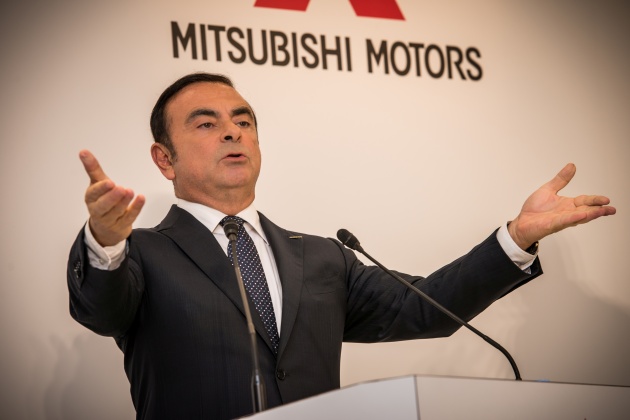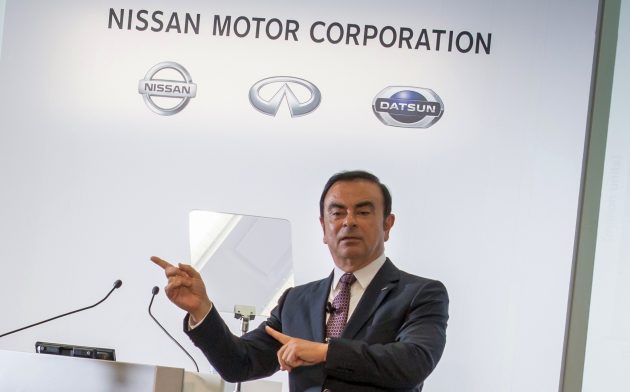While Carlos Ghosn’s criminal prosecution in Japan may have created tensions inside the Renault-Nissan-Mitsubishi alliance, it is apparently not slowing down the three automakers’ plans to bring their vehicle platforms closer together, Philippe Klein told Automotive News.
Klein, Nissan’s head of global planning, said “I am going to be damn clear. What is taking place is not changing, is not challenging, is not questioning [the alliance]. There is frankly no willingness to change that” in response to whether Ghosn’s legal trouble is causing a reconsideration of shared platforms.
Klein explained that the three firms recently met to develop a new level of shared product development activity, which extends to a range of global vehicles. Of the Nissan vehicles expected to hit the market over the next five years, “all but one will be heavily sharing platforms and components” with alliance partners, said Klein, adding that “we are not changing our product planning process at all.”
Weaving together the product development efforts of the alliance had been a passionate mission for Ghosn in recent years. The alliance has already announced plans to share global platforms across a large number of vehicle segments.
All was well, until Ghosn was arrested on November 19 on charges of complex financial misconducts. He was quickly removed as chairman of Nissan and Mitsubishi, but remains as CEO of Renault – his duties are currently being handled by other senior executives.
Klein declined to discuss Ghosn’s situation during an interview at the Detroit Auto Show, but reacted strongly to the question on whether Ghosn’s departure might cause Nissan, Renault and Mitsubishi to drift away from their alliance efforts. “There is a lot of things moving, and it’s going to require readjustment,” Klein said of the crisis. “But, we are going to manage to go through that.”
Disrupting the alliance might not be an option, because its network of manufacturing, sourcing and product planning are deeply intertwined. In fact, cooperation between the three automakers is critical to tackling current industry challenges, especially relating to tightening environmental regulations, powertrain transitions, development of autonomous driving tech and emergence of new transportation models.
The automakers are stitched together in a complex web of cross-shareholdings. Renault holds a 43% controlling stake in Nissan. Nissan, the bigger, more profitable partner, owns just 15% of Renault and has no voting rights. Nissan also has a controlling, 34% stake in Mitsubishi.
Research Mitsubishi Cars at
Source: Read Full Article





